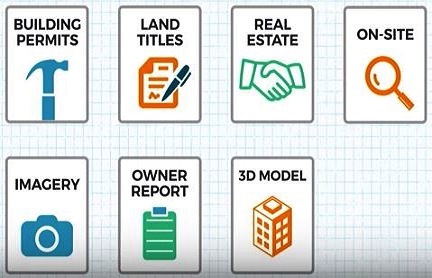What is Your Home and Property Really Worth? Making Sense of the BC Assessment
It’s that time of year again. Every first week of January, BC Assessment, a Crown corporation, sends out its annual notifications of property assessments for owners throughout the province. And every January, homeowners scramble to make sense of the assessment.
What is it really?
BC Assessment is a provincial Crown corporation that assesses and evaluates properties across British Columbia. The value at which your property is assessed is determined by July 1st of the year prior to notification and is strictly for the purposes of property taxation. What it is not is an accurate representation of your property’s current market value, although many homeowners get these figures confused.
If you receive a notification on January 5, 2017, that your property is worth $835,725 and you thought your home would sell on the market for over a million dollars, you’d be forgiven for mistakenly getting alarmed! The fair market value of that home in January 2017 may well be over one million dollars, but what the notice is telling you is that the property was assessed by the government as being worth $835,725 on July 1, 2016, for the purposes of calculating your 2017 property taxes. Homeowners can also look up the value of their property at any time by checking on the BC Assessment website.
How is it calculated?
The B.C. Assessment Act defines “actual value” as “the market value of the fee simple interest in land and improvements.” BC Assessment claims to conduct fair, accurate, and equitable assessments for about 2 million BC properties annually. A video created by BC Assessment purports that building permits, land titles, owner reports, imagery, on-site inspections, and 3D modelling are used to gather data and build assessments. Though we are not privy to the exact formula (the 3 minute, 57-second video actually spends less than one full minute describing how they assess while the rest of the video espouses the benefits of their corporation), property appraisers generally look at the following criteria. Size and location of the property are important factors, also taking into account the location’s topography. The age and shape of the house are included, as is the overall condition. Renovations less than one-year-old may be considered, particularly when high-quality materials and finishing are used, though you may have to bring this to the attention of the appraiser. Lastly, other factors such as replacement cost, rental income, and sales of comparable nearby properties are also considered.
Current market value, however, is the most probable purchase price a buyer will invest in a new-to-them property. This is very different than your property tax assessment. Current market value is based upon the most recent, most closely comparable sales in an open market among similar properties in a given neighbourhood. Generally speaking, comparisons could happen between similar sold properties, by using cost plus methods for inactive areas, or by using a subjective pricing method for a property with unique features. To learn the current market value of your home, contact a realtor who is a) hyper-local and knows your area well, and b) trained in comparative market analysis (or CMA).
Local relevance and concerns
2017 is a big year for the Tri-Cities, with the Evergreen expansion of the SkyTrain Millennium Line having just opened on December 2, 2016. Landowners within a one-kilometer radius of SkyTrain stations have likely already been approached to sell their homes. Homeowners throughout the rest of the Tri-Cities will likely follow, as developers seek to capitalize on the growth the SkyTrain is already bringing to the region. With the burgeoning development across Port Moody, Coquitlam, and even Port Coquitlam, be certain that you are well informed as to the difference between your BC Assessment and current market value before you are approached about selling your home.
You may want to ensure that your BC Assessment reasonably reflects the value of your home. As noted above, many factors likely go into the BC Assessment. If you feel that your assessed value is not an accurate reflection of your property, you can appeal the assessment.
Despite the diligence that we hope BC Assessment puts into their property assessments, did you know that the British Columbia Court of Appeal recently held that, with limited exceptions, these assessment reports are not admissible in court as evidence of the value of real property? Because of the multiple numbers of assessors working and the very real possibility of bias and subjectivity creeping in, the assessment cannot be deemed reliable and, as such, the Court concluded that the assessment cannot be held as evidence. One concern the Court cited was not being able to determine factors that would increase reliability, such as how the assessor made the assessment and what weights were given to each of the criteria used. Particulars are often lacking in assessment reports, assessments can be based on opinions or computer-generated algorithms, and the Court acknowledged that the facts are therefore unknown.
What does this all mean to you a homeowner, potential seller, or buyer? We advise you to exercise caution, whatever you plan for your home. Prepare yourself with as much accurate and current information as possible. If you choose to appeal the value of your assessment, or you are thinking of selling, talk to someone knowledgeable first. If you have any questions about the current value of local residential properties, please feel free to call me at 604.561.8892 or send me an email. – Jessica Chen Sargent

